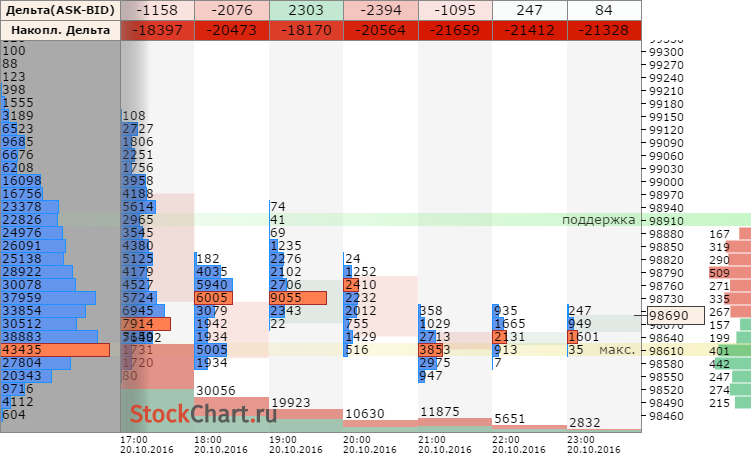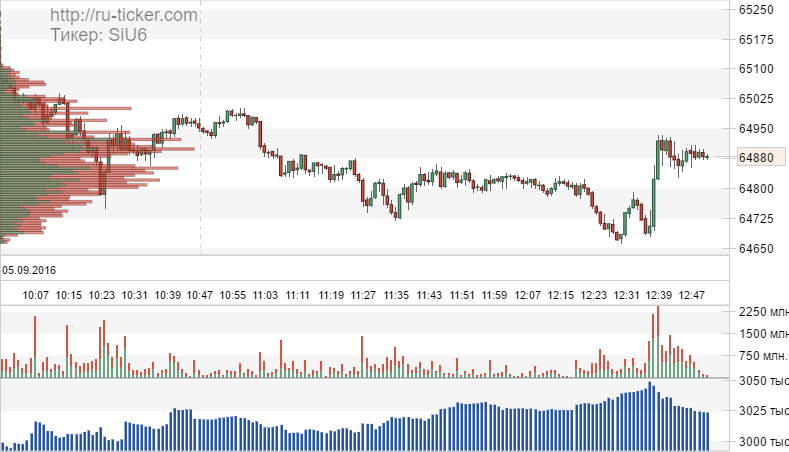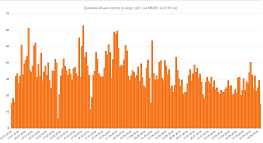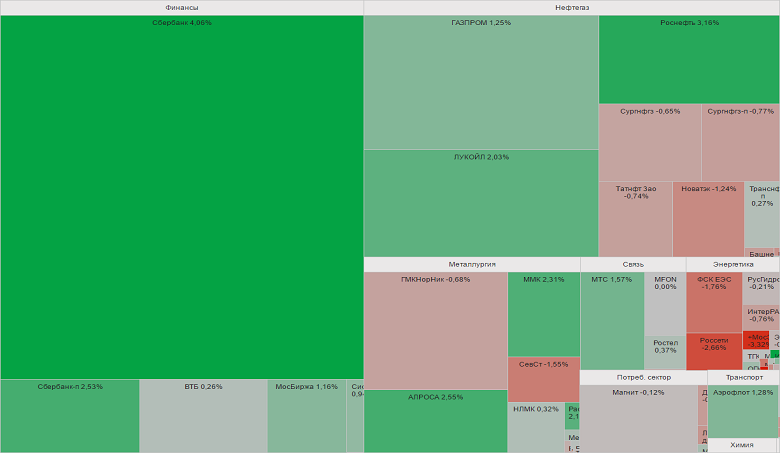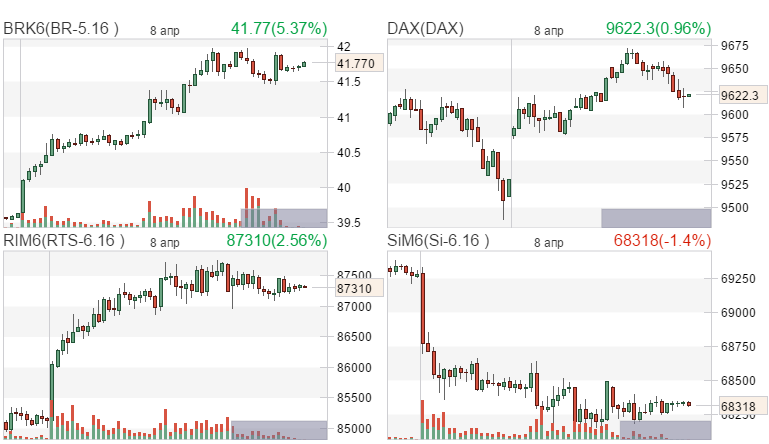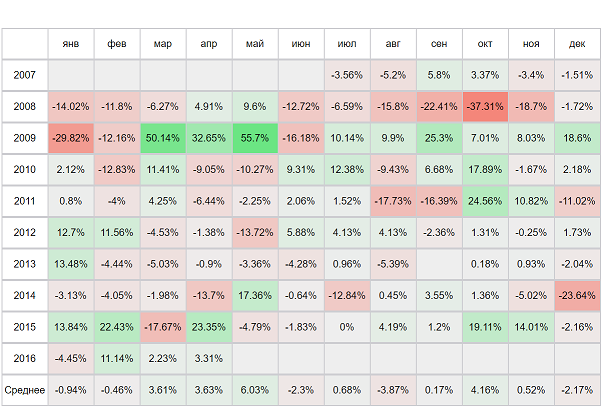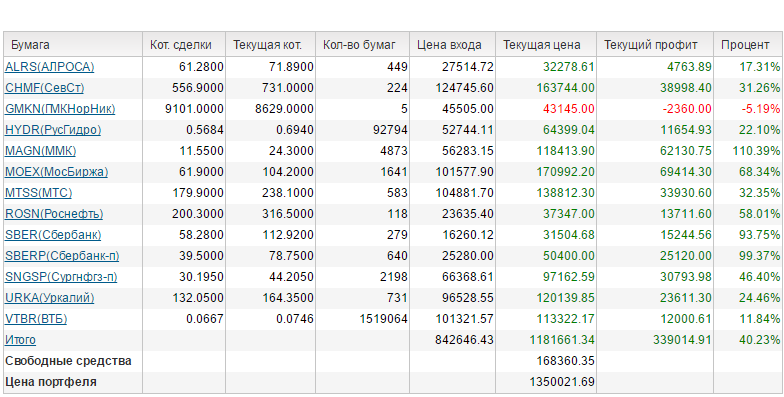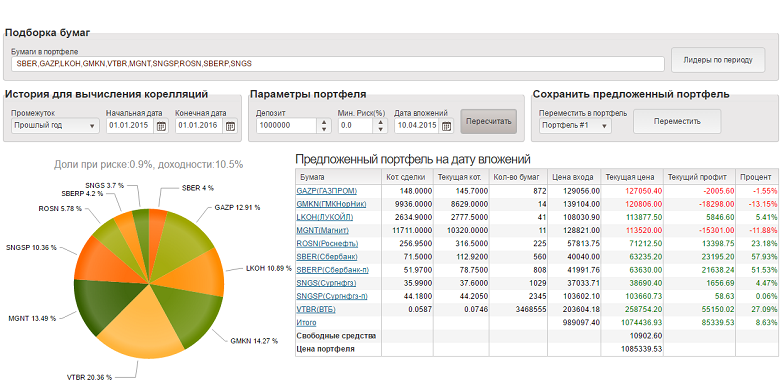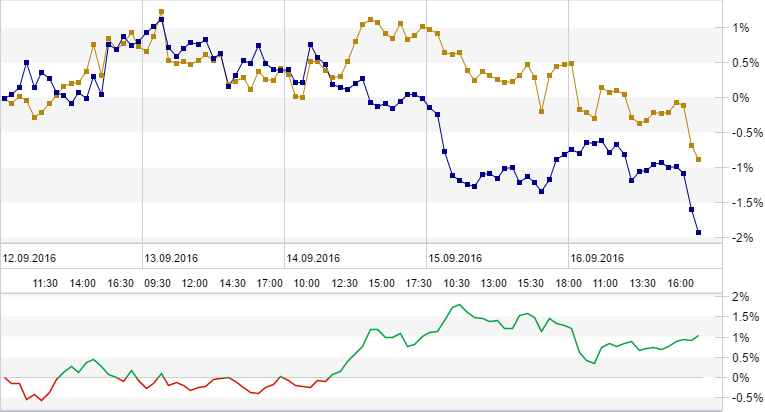 |  |  | |||||||||||
 |
|
||||||||||||
 |  |  | |||||||||||||||
 |
|
||||||||||||||||

Техническая поддержка
ONLINE
 |  |  | |||||||||||||||||
 |
|
||||||||||||||||||
🔥Прямо из Вашингтона! ТРАМП вышел со срочным заявлением: говорит о ВОЙНЕ! СЛУШАЙТЕ
ruticker 08.03.2025 21:04:58 Текст распознан YouScriptor с канала Новини.LIVE
распознано с видео на ютубе сервисом YouScriptor.com, читайте дальше по ссылке 🔥Прямо из Вашингтона! ТРАМП вышел со срочным заявлением: говорит о ВОЙНЕ! СЛУШАЙТЕ
It's not just five weeks; it's five weeks plus a few months. They put it into effect pretty quickly. They have confidence that what I'm saying is going to happen. So, with that, I'd like to ask a highly respected gentleman, Kevin Hassett. He's been with us for a long time, and he's been right about a lot. We had the greatest economy in history in the first term, and Kevin was a big part of it. So, Kevin, could you maybe give a little description, please? > **Kevin Hassett:** Thank you very much, Mr. Trump. I think that the three things you emphasized during the campaign are that you wanted to create domestic high-paying manufacturing jobs, end wasteful government spending, and reduce unproductive government workers. In fact, unleash them into the private economy where they could be more productive and create jobs for Americans. A lot of people said that if you deported illegals, employment would go down because no Americans would take those jobs. If you look, 280,000 American-born folks were hired. Manufacturing jobs are going up, and this is just out of the expectation of your future policies. Really, sir, it's in April when your Reciprocal Trade Act is expected to happen. The tax cuts haven't passed yet, and so people are clearly expecting the Golden Age. If you want to forecast the future numbers, everybody just keep in mind that President Trump has already gotten us $1.7 trillion in commitments for new factories, and those haven't even happened yet. Those aren't even in the numbers. So, I expect this is going to be a glimpse of a golden age to come. > **Mr. Trump:** Thank you very much. One other thing: Canada. You know we find that they're charging us over 200% for dairy products. You know about that. When I left, we had that well taken care of, but under Biden, they just kept raising it. It's very difficult to deal with the Canadian representatives. 250% for dairy products tariff. So, where do you hear that? You don't hear that. They have a tremendously high tariff. I'll give you the exact numbers in a little while coming out on lumber. They make it impossible for us to sell lumber or dairy products into Canada, but our numbers are a tiny fraction of that—almost non-existent. What we're doing is freeing up our forests from the environmental nonsense that they put on them, where you can't cut down a tree. We have to cut down trees in order to build the firewalls, and those trees are sold. But we're going to free it up on an emergency basis because Canada has been ripping us off for years on tariffs for lumber and dairy products. 250%! Nobody ever talks about that 250% tariff, which is taking advantage of our farmers. So, that's not going to happen anymore. We're going to charge the same thing unless they drop it, and that's what reciprocal means. We may do it as early as today, or we'll wait till Monday or Tuesday, but that's what we're going to do. It's not fair; it never has been fair, and they've treated our farmers badly. Look, our country has been ripped off by everybody. That stops now. I had it stopped in my first term, and we're going to really stop it now because this has been very unfair to our country from an economic, financial, and trade standpoint. We've been absolutely ripped off by almost every country in the world—Canada, Mexico, and then you just go right down the line. India charges us massive tariffs. You can't even sell anything into India. It's almost restrictive. They've agreed, by the way, they want to cut their tariffs way down now because somebody's finally exposing them for what they've done. Same thing with China, same thing with a lot of other countries, and the EU has been a terrible abuser of this country. I mean, the EU was formulated in order to take advantage of the United States, and they have taken it, but they're not taking advantage when I'm in charge. Sometimes you'll hear some negative things; it's always from outside countries. America will be very strong, and you know if I'm a foreign country, they're going to do fine, but they can't do like they used to do because we're going to bring back our business into this country. We need it from a job standpoint; we need it from even just a psychological standpoint. Think of it: 90,000 factories are gone since the beginning of NAFTA. So, we're not going to have that, and we're going to see them build it back. Now, we've already had five major automobile companies. First time you've heard this in a long time since my first term, actually, where we were really rocking and rolling, and then Biden came in and he stopped everything—such a stupid thing to do, not even a believable thing. But we have many auto plants now coming in. We have big chip plants. We have the biggest chip company in the world—probably one of the most powerful companies in the world, wouldn't you say, Kevin? > **Kevin Hassett:** Yes. > **Mr. Trump:** And he's coming in, and they're building one of the largest chip plants in the world that'll be done in Arizona. Mostly in Arizona, and that'll give us a big percentage. That one plant will give us a big percentage of the chip market—something we have very little of. You know, we used to have Intel, and Intel was run by a man named Andy Grove. Andy Grove was a tough, smart guy. I used to read about him when I was a young man, and he did an incredible job. He really dominated the chip business, and then he died. I guess they had a series of people that didn't know what the hell they were doing, and we gradually lost the chip business. Now it's almost exclusively in Taiwan. They stole it from us; they took it from us. I don't blame them; I give them credit. I blame the people that were sitting in this seat because they allowed it to happen. We could have protected that so easily. So, we had the chip business, and now it's all in Taiwan—almost exclusively, a little bit in South Korea, but mostly in Taiwan. It's very important. Everything you do, everything you touch is now about chips. The brakes of a car have chips all over the place. I was reading an article the other day where they talk about the brakes of a car being loaded up with chips. Who would think that a brake has a chip in it? But it's all about chips. So, that was a big thing, and they'll be investing hundreds of billions of dollars in this country, and we'll be taking back a big, big portion of that industry. We have others coming in too, but a lot of car manufacturers are coming in, and they're coming in fast. One of the reasons you see these numbers—and again, Kevin said it, and I said it a little bit—but the fact that they know I won the election. So, after I was president-elect, I assumed that I was going to do what I said because I do what I say. So, these numbers really reflect a lot of the things that took place since November 5th. Right? So, Kevin, thank you very much. Great job. > **Reporter:** Any concerns that the large-scale federal government layoffs will weaken the labor market? How concerned are you that the large-scale federal government layoffs will impact the labor market? > **Mr. Trump:** Oh no, I think the labor market's going to be fantastic, but it's going to have high-paying manufacturing jobs as opposed to government jobs. We had too many people in government. You can't just do that. We had many, many too many. This is for 40 years; you know this isn't just now. This built up and got worse and worse, and they just hire more and more people. You look at the Department of Education; it seems like so many buildings. I drive by it; it says Department of Education. They're all over the place, and we don't even want it. We want the education to be given by the states. It'll be much better; it'll move us to the top of the list from the bottom of the list and actually save us money. But it's too important even to talk about. It'll save us a lot of money, but we don't want that. We want education to be given. So, you go to Iowa and Indiana and Idaho and all these places; they're so well run. They're going to be producing education that will be the equivalent of like Denmark, Norway, Sweden. Actually, China is one of the better in terms of education. So, we can't blame size anymore. You know, China has 1.4 billion people, but they're very high on their list. So, one thing we're doing well on with number one on the list is cost per pupil. We spend more money than any other country in the world by far. So, I jokingly say the one thing we do well on is the cost. We spend more money, and yet we're toward the bottom of the list. > **Reporter:** Mr. President, I want to ask you about the joint address. Millions of Americans watched your joint address earlier this week, where you warned that there could be a little disturbance that Americans could feel as a function of these taxes, these tariffs. How much disturbance are you willing to accept in the near term as a function of that? And to set expectations, how long should Americans expect things to cost a bit more? > **Mr. Trump:** Well, so far, Peter, there hasn't been very much because these numbers are coming out. We're here for just a little over four weeks, and these are fantastic numbers. I was watching some of the reports this morning; they were surprised. There could be some disturbance—a little bit of disturbance. I saw a little bit of that because I have respect for our auto companies, and I gave them a little bit of a one-month reprieve because it was unfair. Although I'm sure they'll take advantage of it. I see they're driving a lot of cars into the U.S. to try and avoid the tariffs and, you know, taking advantage of it a little bit. But they called me; they asked me if they could have a little bit of help, and I decided, you know, they're American companies, USMCA, and I let them have that. But this really kicks in—the reciprocals, you know, kicks in on, let's see, I guess the second. I wanted it to be the first so badly; it just didn't want to be on April Fool's Day, so I made it the second. That's going to cost a lot of money. That one day is going to cost a lot of money, but that's okay. I don't see it; I don't see anything. I see good reports. I think we're going to have good numbers from the beginning. Now, globalists won't love this because this brings jobs back to America. So, if they're coming back to America, maybe you'll lose some in other parts of the world, but the other parts of the world have done very well, and they'll continue to do very well. But I think the United States is going to be doing record business. We'll bring a lot of those 990,000 factories that have been lost over the last number of years. It's hard to believe—90,000! Think of what 90,000 is. 90,000 plants and factories are gone. We're going to bring back many of those plants and factories. One day the tariffs are on; the next day they're off. Right now, the markets, as you know well, prefer stability. Are you done going forward with the pauses and the car outs? Is that it for those? > **Mr. Trump:** There'll always be changes and adjustments. You know, you can't just—I could have, for instance, told the American car companies, "No, I'm not going to give you anything," and then you wouldn't have had to say, "Well, they're getting a little extra." It's just a little bit of a one-month reprieve. They're very happy about what's happening. They won't have to go across borders, and you see the zigzag. You have a fender made in Canada; you have something else made in Mexico. We don't want that; we want it made here. But there'll always be some modifications. I mean, if you have a wall in front of you, sometimes you have to go around the wall instead of through it. But I think very little. I think very little on occasion. If we can do something, we want to help companies. We want to help companies create jobs. So, I could have left that, and you wouldn't have had a minor change. Instead, I was asked by the major—the real majors, the big majors—if they could do this, and I said, "Yeah, I'll do it. I want you to produce a lot of jobs." Numerous of the people—actually, all of the people I spoke to—have already been. They're very much on the way to already. That's why you have auto jobs increase. The man—I don't know him, Sean Fain. I don't know him, but I did great, as you know, with the auto workers, with the Teamsters, with unions. I did fantastically well—best numbers ever by a Republican. But I have a lot of respect for those people. But Sean Fain, who I don't know but wasn't a supporter, although the other workers were big supporters, I watched him last night, and he said, "Donald Trump is absolutely right on tariffs." He said, "What he's doing on tariffs is an incredible thing, and it's about time somebody had the guts to do it because we're going to save auto manufacturing." I said to people when I was campaigning, "You're going to have so many auto jobs, you're not going to believe what's going to happen. We're going to load up Michigan." I won the state of Michigan, as you know, and part of the reason I won it was I got a lot of auto workers that voted for me—Detroit, etc. But I think people are going to be very surprised. > **Reporter:** Thank you, Mr. President. You mentioned in your remarks chips manufacturing, how a significant percentage is now in Taiwan. You also mentioned it in your address to Congress, and you called on Congress to overturn the Chips Act, which had bipartisan support in the last Congress. Why would you like to see this particular law overturned? > **Mr. Trump:** Because it's hundreds of billions of dollars, and it's just a waste of money. Now, some people have already taken the money and used it. Actually, it's very hard to qualify because they go by race, they go by gender, they go by all sorts of things. Nobody's ever seen anything like it. You won't be able to find those people. So, I don't even think anybody can qualify. They have so many different categories. In order to qualify, you have to have so many of a certain race, a certain gender, a certain this, a certain that, and it's—I don't think they can qualify. But if they take the money, they better qualify because they'll be watching them. But it's a tremendous waste of money. I didn't give the greatest chip company in the world—one of the greatest companies—I didn't give them 10 cents. They came here because of tariffs, because they didn't want to pay the tariffs, and they also came here because they like the results of the election because they know that I'm very pro-business and pro-jobs. I mean, I'm pro-business not for business's sake; I'm pro-business because of jobs, because business is producing the jobs. > **Reporter:** Okay, Russ, if I may. President Putin is bombing Ukraine. Do you still believe him when he tells you that he wants peace? > **Mr. Trump:** Yeah, I know. I believe him. I believe him. I think we're doing very well with Russia, but right now they're bombing the hell out of Ukraine. I'm finding it more difficult, frankly, to deal with Ukraine, and they don't have the cards. They don't have the cards. As you know, we're meeting in Saudi Arabia sometime next week early, and we're talking. What I find is that in terms of getting a final settlement, it may be easier dealing with Russia, which is surprising because they have all the cards. I mean, and they're bombing the hell out of him right now. I put a statement in—a very strong statement. Can't do that. Can't do that. > **Reporter:** Mr. President, we're trying to help them, and Ukraine has to get on the ball and get a job done. > **Michael:** Could you come up here? I see Michael back there. Good, I'm glad he's traveling all over the world. I just saw him come in the door. Could you give a little definition of what's going on, please? > **Michael:** Sure. Well, the president has been crystal clear, and he's been clear to all sides. The fighting has to stop. Both sides need to get to the table. We had a good engagement at both leaders have said only President Trump could do so, and only he has been able to do so. We had an initial engagement with the Russians. The Ukrainians had a great opportunity to bind our economies together through that mineral deal. Unfortunately, that didn't go so well, but we think we're going to get things back on track. Secretary Rubio, myself, and the Ukrainian delegation will be meeting in Saudi Arabia next week to get these talks back on track, get a ceasefire in place, and drive peace home under President Trump's leadership. > **Mr. Trump:** President, you put out both parties want to settle. I think if I wasn't president, this war would have had no chance of settlement—zero chance. But I think we're going to get it settled and stopped. We've got to stop. They're losing, on average, 2,000 soldiers a week. It's a lot of soldiers. > **Reporter:** Do you agree, Peter? It's a lot of soldiers on both sides. > **Peter:** I agree. > **Mr. Trump:** Do you, Mr. President, think that Vladimir Putin is taking advantage of the U.S. pause right now on intelligence and military aid to Ukraine? > **Mr. Trump:** No, I actually think he's doing what anybody else would do. I think he wants to get it stopped and settled, and I think he's hitting them harder than he's been hitting them. I think probably anybody in that position would be doing that right now. He wants to get it ended, and I think Ukraine wants to get it ended. But I don't see—it's crazy. They're taking tremendous punishment. I don't quite get it, but I suspect, Michael, he probably wants to get it ended. > **Michael:** He does. > **Mr. Trump:** Mr. President, the Russians are taking incredible losses on the front. As the president has said, this is a meat grinder of people, of material, of national treasure, and no one else has any solutions except to let this war continue forever. But I'll add the president has had multiple conversations and a visit from President Macron of France, Prime Minister Starmer of the United Kingdom. We have the NATO Secretary General coming next week. We have this meeting with you, with Ukrainians. We've had it with the Russians. All of this in the president's first month and his leadership. We will engage in the shuttle diplomacy, and we will continue to use his leadership and what leverage we have to get both sides to the peace table. It's not going to be easy, but if President Trump never happened, it would have never happened. So, a lot of other things shouldn't have happened too. We shouldn't have 21 million people pouring into our country through open borders, many of whom are criminals—very bad criminals, including murderers. Thousands of murderers—many killed far, far more than one person—and they're roaming our streets. But Tom Homan and Christine Nome are doing an incredible job, and we're getting them out of here, and we'll get them out. We'll get them all out. But all these things shouldn't have happened. We shouldn't have inflation. We shouldn't have had this horrible inflation where the prices have gone up. Look at eggs. So, we're doing a good job. We're doing a good job. > **Reporter:** Mr. President, in regards to the pause on military assistance to Ukraine, you put out on your social media post today that Russia is pounding Ukraine. That's right. Why not provide Ukraine with air defenses? And what happens, Mr. President, when Ukraine runs out of missiles? > **Mr. Trump:** Good question, because I have to know that they want to settle. I don't know that they want to settle. If they don't want to settle, we're out of there because we want them to settle, and I'm doing it to stop death—more important than anything else. Secondarily, way down the line, is the money. So, we're in for $350 billion, and Europe is in for $100 billion. They should be in for the same or more than us. You know, I watched over the last week or so what's going on in Europe. This thing could end up in World War III if we don't get it settled. This could really end up in a World War I. We've got to get it settled. > **Reporter:** So, on Iran, how confident are you that the Iranians will negotiate with you and on both with this outreach? > **Mr. Trump:** Yeah, I saw the hostages the other day. They came in—people that were not young, some young and some older, much older—and they gave—it was hard for them to do it, actually. They gave statements as to what happened. I was asking, "What happened? How was it?" I said, "Did you see anybody in there that was kind, like out of the hundreds of people that you were seeing?" Hamas—did some of them wink at you and say, "Don't worry, you're going to be okay," or give you a piece of bread? Or no? I said, "Were there any people that were kind?" I was shocked. The edge was nobody. There was nobody. Just the opposite. They'd be slapped and punched. One man broke his ribs; he couldn't breathe for a month. It was brutal. I was so surprised. Could you think there'd be a couple of people that would be kind, that would say, "You're going to be okay"? But they had none of that. It's pretty amazing. > **Brian:** He's a kind person, although not to Zelensky. He wasn't, but to Trump, he's been good. Go ahead. > **Reporter:** Nice, by the way. Thank you. Thank you. I like yours too. Two questions—one on peace. Why don't you think any other European countries are offering a peace deal? It seems like no one's come to the table for peace except for you. > **Mr. Trump:** Yeah, it's a very good question. Sometimes questions aren't answerable. They're in a very unusual position. They don't know how to end the war. I think I do know how to end the war. Despite the Russia, Russia, Russia hoax, I've always had a good relationship with Putin, and you know he wants to end the war. He wants to end it, and I think he's going to be more generous than he has to be, and that's pretty good. Good, that means a lot of good things because, frankly, you could have made a great deal. If this war never started, you could have made a great deal. I don't know that anything would have had to be given up. This was not a war that was going to start, Brian, and it didn't start for four years. You know, somebody said, "Well, how do we know that?" Well, for four years, it didn't start. I used to speak to Vladimir about it; I used to speak to him about it at length. It was the apple of his eye, but there was no way he was going in, and he knew there were going to be consequences. But it did start. I mean, think of what happened: inflation, you have the war with Ukraine and Russia—that wouldn't have happened. October 7th would have never happened. Israel had no money, and Iran was stone-cold broke, and now they have a lot of money. That's going to be the next thing you'll be talking about: what's going to happen with Iran. There'll be some interesting days ahead, that's all I can tell you. You know, we're down to final strokes with Iran. That's going to be an interesting time, and we'll see what happens. But we're down to the final moments. We can't let them have a nuclear weapon. I think that I would have had a deal within one month after the rigged election of 2020. They were all set to make a deal, and then when I lost, I saw this person—a very stupid person—said, "Let's not make a deal." They were right; he took the sanctions off. They became rich under Biden. They went from having no money to having $300 billion—all in a short period. It's oil; oil builds up fast. It's a nice living if you have a nice oil well, and they do. They have a lot of nice oil wells, right? So, anyway, it's going to be a big thing. It's an interesting time in the history of the world, but we have a situation with Iran that something's going to happen very soon—very, very soon. You'll be talking about that pretty soon, I guess, and hopefully, we can have a peace deal. You know, I'm not speaking out of strength or weakness; I'm just saying I'd rather see a peace deal than the other. But the other will solve the problem. > **Reporter:** Your allies say your allies are calling on you to pardon Derek Chauvin. Are you considering pardoning Derek Chauvin? > **Mr. Trump:** No, I haven't even heard of it. > **Reporter:** Mr. President, on peace, I haven't heard that. In the first term, you may recall I broke the news that you were nominated for the Nobel Peace Prize, and the reason for that was the work that you led on the Abraham Accords. I spoke yesterday with a member of the Norwegian Parliament that nominated you, and he said what the Nobel committee is looking for from you, Mr. President, is security guarantees for Ukraine. Is that a possibility, Mr. President? > **Mr. Trump:** So, before I even think about that, I want to settle the war, get it finished, because if I'm not here, nobody's going to settle it. President Macron has said that, and every president, every prime minister has said that. We're pushing very hard; that's all I'm thinking about now. As far as the question about security later, that's the easy part. The hard part is getting it settled. We got to get them to stop losing 2,000 human beings every week—more than that, actually. 2,000 nice young people, although they're getting older because they're drafting much older now in the case of one country. Much older because a lot of the young people have been killed. It's very sad, and I'd like to see if I could stop that. I'd also like to see if we could stop making these massive payments from the United States. I mean, Biden gave away money like it was water—with no anything, got nothing for it. Europe did it in the form of a loan; they get their money back. We don't. So, that's how we came up with the rare earth deal, but we started behind the eight ball. He could have gone to Europe; he could have said, "Come on, you got to put up money with us." But he never did that. They just kept handing money out because he was grossly incompetent. Thank you very much, everybody. Thank you very much. Thank you. Thanks, guys.
Залогинтесь, что бы оставить свой комментарий

